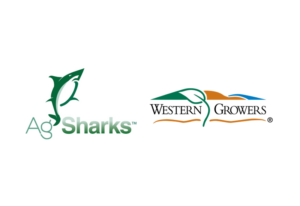Jan 10, 2024
Value-added products key to organic sales growth
The prospects for organic produce remain strong in these inflationary times, according to leaders of some of the largest grower-shipper operations.
Market strength varies, however, depending on which commodities growers are trying to sell.
“The category is going to grow based on consumer demand,” said Nishan Moutafian, vice president of production at Driscoll’s in Watsonville, California.
While organic berry growers enjoy strong demand, organic vegetable growers find demand varies depending on the product.

“We feel there is a lot of opportunity on the value-added side,” said Joe Pezzini, senior director of agricultural operations at Taylor Farms in Salinas, California. “The value-added side will continue to grow; it depends on innovation. The commodity side is flat.”
Moutafian and Pezzini made their remarks during a grower roundtable on the state of organic farming during the Organic Grower Summit in Monterey, California, in November. The summit was co-sponsored by Western Growers Association and the Organic Produce Network, a 6-year-old organization created to bring together organic produce retailers and growers large enough to supply them.
Statistics gathered by the Category Partners farm market data firm highlighted the strongest organic growth categories. The firm noted that organic berry sales increased nearly 7% in the third quarter of 2023 compared to the previous year, while organic prepackaged salads were up 5.4%.
 Sales of organic lettuce, onions and tomatoes were all up less than 4% year over year, while sales of organic celery, squash and peaches were down.
Sales of organic lettuce, onions and tomatoes were all up less than 4% year over year, while sales of organic celery, squash and peaches were down.
Taylor Farms already has a value-added program in place, but shippers that are relatively new to the value-added category must navigate questions of how to invest.
“During COVID, we saw a huge jump in value-added products,” said Briana Giampaoli, organic category manager at Merced County-based Live Oak Farms in LeGrand. “We’re looking at more value-added products, but it requires risk at first to learn what equipment to buy.”
Live Oak Farms grows and ships large volumes of tomatoes and peppers.

Moutafian and Pezzini agreed that maintaining a reliable supply 12 months of the year is essential for strong sales.
“The majority of consumers who buy organic are making that choice in the store,” Moutafian said. “Reliability is a key to getting good placement in the produce department.”
Growers need cooperation of seed companies if they are to provide a steady supply of organic produce.
“In some commodities, like spinach, a lot of effort has been put into disease resistance,” Pezzini said. “In some other commodities, we need the seed companies to put more emphasis on disease and pest resistance.”
Driscoll’s breeds its own berry varieties and conducts trials on organic ground to test disease resistance. “Our breeding for disease resistance is an important part of what we do at Driscoll’s,” Moutafian said.
Cooperation with other innovators is important if organic produce is to remain competitive, producers said.
“It’s worth it to take the time to let the innovators integrate with your operation,” Giampaoli said. “It will pay off.”
Western Growers has made it a priority in recent years to serve as a facilitator between technological startup firms, farmers who are willing to host trials and investors who are able to help small firms scale up their more promising ideas.
 During its annual Ag Sharks competition, Western Growers gives startups a chance to compete before a panel of growers and investors. The prize is investment capital of at least $250,000.
During its annual Ag Sharks competition, Western Growers gives startups a chance to compete before a panel of growers and investors. The prize is investment capital of at least $250,000.
The three finalists in the 2023 competition included a company with a mobile biochar unit that can produce the soil amendment at a fraction of the cost. Another was a software company that can automate the process of producing reports required by regulators and buyers. The third was a firm producing material that protects fruit from sun, heat and wind damage by strengthening the cuticle, or microscopic layer encompassing the fruit.
Despite inflationary pressure, the recent trend in organic produce sales has been promising.

Walt Duflock, senior vice president of innovation at Western Growers, said the organic sector enjoyed $60 billion in sales nationally in 2022, $22 billion of that in produce. There has been a $10 billion increase in sales over four years, he noted.
He also pointed to demographic factors that should help the organic produce market in the next few years.
“Millennials and Gen Z are starting to build their families, and they prioritize health,” Giampaoli said.
There must be a reliable supply of quality organic produce if growers are to benefit from potential growth in the market.
“We need to make sure consumers retain their confidence in the organic label,” Moutafian said. “If the consumer is going to spend that money, they want it to be for something they really want to eat. There is going to be more demand, and my job is to figure out how to supply that.”
Bob Johnson is a reporter in Monterey County, California. He may be contacted at bjohn11135@gmail.com. Story courtesy of the California Farm Bureau’s Ag Alert.






